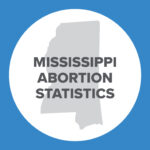An Ethics Assessment of COVID-19 Vaccine Programs
This is Issue 46 in the On Point Series.
This page outlines the ethical considerations involved solely in vaccine production, based on information present at the time of publication. Subsequently, publication of scientific papers has provided additional details about the vaccines. You can find the latest information by clicking the blue button labeled “Latest COVID-19 Vaccine Chart” at the top of the page.
The recent global concern for a devastating disease impact by COVID-19, the disease caused by the newly identified SARS-CoV-2 (CoV-19) coronavirus, has prompted a rapid intensification of efforts to develop an effective vaccine to limit the spread of the virus and to reduce COVID-19 illness and deaths. A study from the Coalition of Epidemic Preparedness Innovation (CEPI) identified 115 COVID-19 vaccines in development. At least 78 of these vaccine development initiatives were confirmed to be actively under way. However, many of these active projects are still only at the laboratory investigation stage (1), with many different biological strategies being investigated (2,3).
As shown in Table 1, there are a number of COVID-19 vaccine programs that are now in registered clinical trials or in early pre-clinical stages of development. Five of these identified efforts use genetically engineered adenoviruses for production of CoV-19 products that are thought likely to make effective vaccines. Engineered adenoviruses are established manufacturing vectors for gene therapies and viral vaccine development. The safety of these genetically modified viruses is due to their inability to reproduce themselves in the absence of artificially supplied factors that promote their self-multiplication. They are described as replication-deficient (RD) viruses. In order to manufacture RD adenoviruses or, in the case of vaccine production, their CoV-19 viral products, their viral genomes are introduced into cultured human cells genetically engineered to make their missing required replication factors (4,5). Several commonly used human cell lines developed for this function were established from cells taken from electively aborted human fetuses (4).
The use of cells from electively aborted fetuses for vaccine production makes these five COVID-19 vaccine programs potentially controversial and could reduce willingness of some to use the vaccine. While some may see no ethical problem, for many a straight line can be drawn from the ending of a human life in an abortion to a vaccine or drug created using cells derived from the harvesting of the fetal tissue. Even if the cells have been propagated for years in the laboratory far removed from the abortion, that connection line remains. Thus, use of such cells for vaccine production raises problems of conscience for anyone who might be offered that vaccine and is aware of its lineage. Moreover, the possibility of conscientious objection by those to whom a vaccine is offered creates ethical demands on the policymakers, healthcare officials, scientists, vaccine creators and funders, whether or not they themselves have an ethical concern, because of the question of access to the vaccine by the entire citizenry in good conscience. (6) This is especially true if alternative production methods and vaccines are possible for which there is no ethical question.
In June 2019, the U.S. Department of Health and Human Services (HHS) announced that it would no longer provide intramural funding for government research that requires new acquisition of tissues harvested from victims of ongoing elective abortion, would empanel an ethics review board to review all new or renewal extramural research applications proposing use of fetal tissue, and would provide funding to optimize and develop alternative research models that do not rely on human fetal tissue from elective abortions (7). Funding of new research using abortion-derived cells established prior to the new HHS rule (i.e., HEK293, Per.C6) was allowed to continue.
A rapidly-growing number of COVID-19 vaccine programs, 17 so far identified in Table 1, underscore the many alternative strategies available and useful for COVID-19 vaccine development that pose no controversy. In total, the U.S. government has invested just over a half billion dollars to support three of these vaccine programs (8). Although RD adenovirus strategies are not among the current ethically uncontroversial vaccine programs, good ethics do not preclude the use of adenoviruses to develop COVID-19 vaccines. Human cell lines engineered for RD adenovirus production that were ethically uncontroversial, established from amniocentesis cells have been available for more than a decade (4,5).
Adherence to the highest ethical standards in science and medicine serves all humanity, because it values the dignity of every human life and respects the consciences of all, without exploitation of any group.
Ethical Assessment of SARS-CoV-2 (CoV-19) Vaccine Candidates – Updated 19 June 2020
| Unethical CoV-19 Vaccine Programs | ||||
| Sponsor(s) | Country | Strategy | Clinical Trial Status | Public Funding |
| CanSino Biologics, Inc.
Institute of Biotech., Acad. Military Med. Sciences |
China | Adenovirus vaccine
“Ad5-nCoV”2 HEK293 cells |
NCT04313127
NCT04341389 |
|
| University of Oxford
Astrazeneca |
USA
UK |
Adenovirus vaccine
“AZD1222” “ChAdOX1nCoV-19” HEK293 cells |
NCT04324606
NCT04400838 |
HHS-BARDA3
$1.2 billion4 |
| Janssen Res. & Devel., Inc.
Johnson & Johnson |
USA | Adenovirus vaccine
“Ad26” PER.C6 cells |
NLF5 | HHS-BARDA
$456,237,0814 |
| Univ. of Pittsburgh | USA | Adenovirus expressed
recombinant proteins “PittCoVacc” HEK293 cells |
Pre-clinical | |
| Altimmune | USA | Adenovirus vaccine
“AdCOVID” (RD-Ad5) PER.C6 cells |
NLF | |
| Ethically Uncontroversial CoV-19 Vaccine Programs | ||||
| Shenzhen Geno-immune
Medical Institute |
China | Lentivirus minigenes +
Adult human APC6 cells
|
NCT04299724 | |
| Shenzhen Geno-immune
Medical Institute |
China | Lentivirus minigenes +
Adult human CD/T7 cells “LV-SMENP-DC” |
NCT04276896 | |
| Symvivo Corporation | Canada | Oral bacterium
B. longum, “bacTRL-spike” |
NCT04334980 | |
| Moderna, Inc.
with National Institutes of Health |
USA | RNA vaccine
“mRNA-1273” |
NCT04283461
NCT04405076 |
HHS-BARDA
$430,298,5204 |
| Inovio Pharmaceuticals | USA | DNA vaccine
“INO-4800” |
NCT04336410 | |
| Inovio Pharmaceuticals
Korea Natl. Inst. of Health |
So. Korea | DNA vaccine
“INO-4800” |
CEPI8
$6,900,0009 |
|
| Protein Sciences-
Sanofi Co. |
USA | Protein vaccine
Baculovirus expression |
Pre-clinical | HHS-BARDA
$30,775,3364 |
| John Paul II
Medical Research Institute |
USA | Recombinant Protein
Perinatal human cells10 |
NLF | |
| John Paul II
Medical Research Institute |
USA | Live attenuated virus
Perinatal human cells |
NLF | |
| Sanofi & Translate Bio | USA | RNA vaccine | Pre-clinical | |
| Sinovac Biotech Co., Ltd. | China | Inactivated CoV-19
“PiCoVacc” Vero monkey cells |
NCT04352608
NCT04383574 |
|
| Pfizer and BioNTech | USA
Germany |
RNA vaccine
“BNT-162a1,b1,b2,c2” |
NCT04368728
NCT04380701 |
|
| Novavax | USA | Protein vaccine
“NVX-CoV2373” Sf9 insect cells |
NCT04368988 | |
| Sorrento | USA | CoV-19 spike protein
Expressed on K562 cells |
||
| Arcturus Therapeutics | USA | RNA vaccine | Pre-clinical | |
| CureVac | Germany | RNA vaccine | Pre-clinical | CEPI
$34 million11 |
| Merck/IAVI | USA | Replication-competent recombinant vesicular stomatitis virus (VSVΔG) Vero monkey cells |
Pre-clinical | HHS-BARDA $38,033,57044 |
Table 1 legend
1 National Institutes of Health, National Library of Science NCT number for clinical trials listed on U.S. clinicaltrials.gov
2 Manufactured by CanSino Biologics, Inc.
3 HHS-BARDA, U.S. Health and Human Services-Biomedical Advanced Research and Development Authority
4 BARDA’s rapidly-expanding COVID-19 medical countermeasure portfolio. 2020. https://www.medicalcountermeasures.gov/app/barda/coronavirus/COVID19.aspx.
5 NLF, no registration listing found
6 APC, antigen-presenting cells
7 DC/T, dendritic cells and T cells
8 CEPI, Coalition of Epidemic Preparedness Innovations
9 Weil, D. 2020. Inovio gets $6.9M in funding for South Korea coronavirus vaccine trial. The Street. https://www.thestreet.com/investing/inovio-funding-coronavirus-vaccine-trial
10 Donor-consented human umbilical cord and placental cells
11 Christodoulou, M. 2020. CEPI awards US $34million contract to CureVac to advance The RNA Printer™—a mRNA vaccine platform that can rapidly combat multiple diseases. CEPI News. https://cepi.net/news_cepi/cepi-awards-contract-to-curevac-to-advance-the-rna-printer-a-mrna-vaccine-platform-that-can-rapidly-combat-multiple-diseases/
James L. Sherley, M.D., Ph.D., is an Associate Scholar at the Charlotte Lozier Institute
David A. Prentice, Ph.D. is Vice President and Research Director at the Charlotte Lozier Institute
References
- Coalition of Epidemic Preparedness Innovation. 2020. CEPI publishes analysis of COVID-19 vaccine development landscape. https://cepi.net/news_cepi/cepi-publishes-analysis-of-covid-19-vaccine-development-landscape/.
- Prentice, DA and Sander Lee, T. June 2020. A Visual Aid to Viral Infection and Vaccine Production. On Science Series 1. Accessed June 19, 2020 at: https://lozierinstitute.org/a-visual-aid-to-viral-infection-and-vaccine-production/
- Callaway, E. 2020. The race for coronavirus vaccines: a graphical guide. Nature 580: 576-577. doi: 10.1038/d41586-020-01221-y.
- Kovesdi, I. and Hedley, S. J. 2010. Adenoviral producer cells. Viruses 2(8): 1681-1703. doi: 10.3390/v2081681
- Kochanek, S. and Schiedner, G. 2003. Permanent amniocytic cell line, its production and use for the production of gene transfer vectors. USPTO US6558948B1.
- Watt, H. 27 April 2020. COVID-19 Vaccines and Use of Foetal Cell-lines. The Anscombe Bioethics Centre. Accessed May 4, 2020 at: http://www.bioethics.org.uk/images/user/covidbriefing2.pdf
- Statement from the Department of Health and Human Services, June 5, 2019, accessed February 19, 2020 at: https://www.hhs.gov/about/news/2019/06/05/statement-from-the-department-of-health-and-human-services.html.
- BARDA’s rapidly-expanding COVID-19 medical countermeasure portfolio. 2020. Accessed June 19, 2020 at: https://www.medicalcountermeasures.gov/app/barda/coronavirus/COVID19.aspx.
























